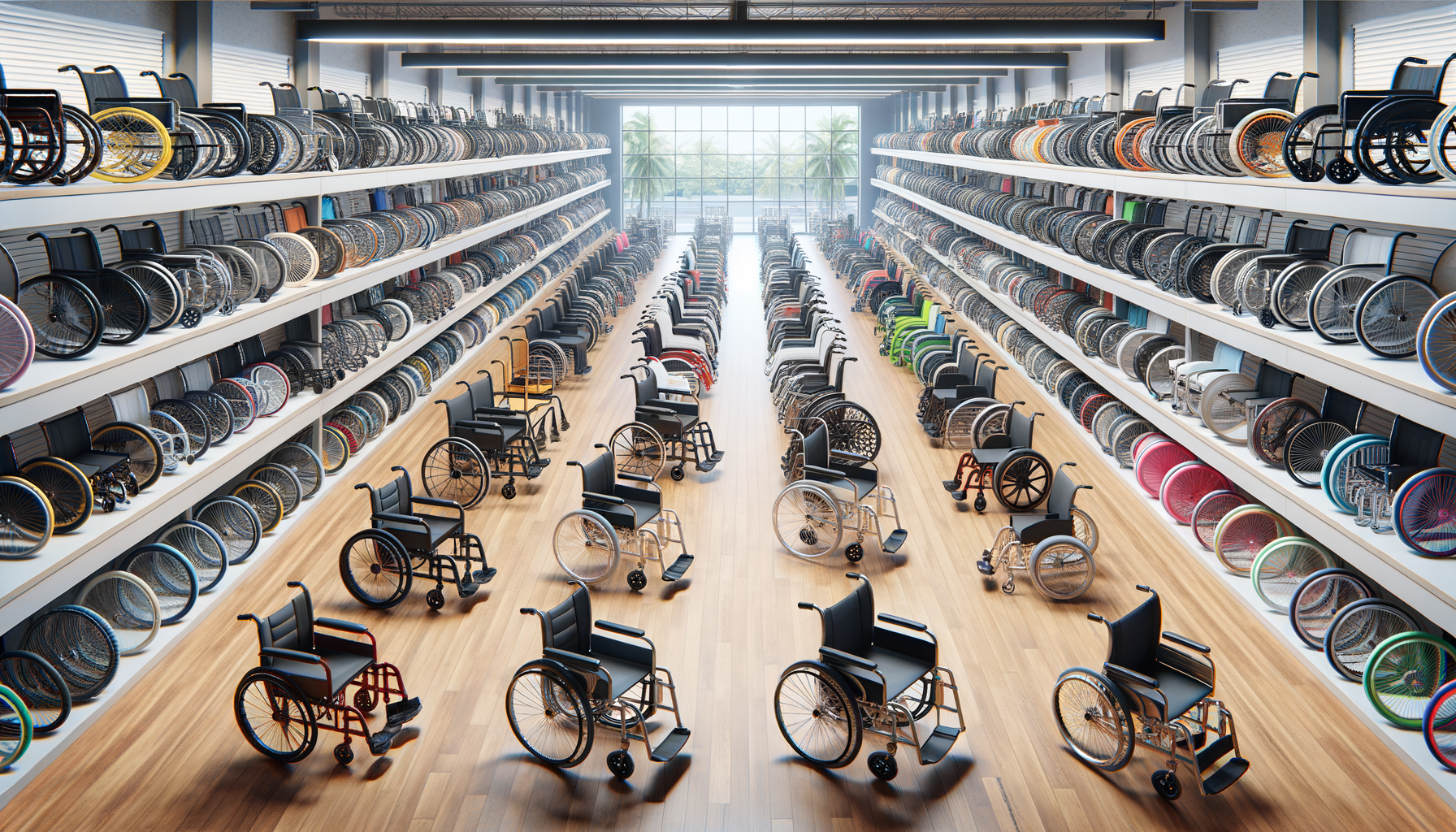
Navigating Through the Landscape of Wheelchair Stores: A Detailed Guide
Understanding the Wheelchair Market
The wheelchair market is a dynamic and essential aspect of the healthcare and mobility industry, catering to a diverse range of needs and preferences. With the aging population and increasing awareness of mobility solutions, the demand for wheelchairs has surged. This market is characterized by a variety of products, each designed to meet specific requirements, from manual wheelchairs to power-operated models. Understanding this market involves recognizing the different types of wheelchairs available, their features, and the specific needs they address.
Wheelchairs are broadly categorized into manual and electric models. Manual wheelchairs are typically lightweight and easy to maneuver, making them suitable for individuals who have some upper body strength. On the other hand, electric wheelchairs provide enhanced mobility for those who may not have the physical capability to operate a manual chair. These variations ensure that there is a product for every need, emphasizing the importance of personalization in the wheelchair market.
Beyond the basic categories, wheelchairs can also be customized with features such as adjustable seating, specialized cushions for pressure relief, and advanced control systems for electric models. The market is also seeing innovations in materials, with lightweight yet durable options becoming increasingly popular. These advancements not only enhance user comfort but also contribute to the overall functionality and longevity of the wheelchair.
Factors to Consider When Choosing a Wheelchair Store
Choosing the right wheelchair store is a crucial step in ensuring that you or your loved ones receive a product that meets all specific needs. Several factors should be considered when selecting a store, including product variety, staff expertise, and customer service quality. A store with a wide range of options allows customers to explore different models and find the one that best suits their lifestyle and mobility requirements.
Expertise is another vital factor. Knowledgeable staff can provide valuable insights into the features and benefits of various models, helping customers make informed decisions. They can also offer advice on maintenance and care, ensuring the longevity of the wheelchair. Additionally, exceptional customer service can make the purchasing experience more pleasant and reassuring, especially for first-time buyers.
Location and accessibility of the store are also important considerations. A conveniently located store with easy access for wheelchair users can significantly enhance the shopping experience. Furthermore, some stores offer home delivery and setup services, which can be a great benefit for those with limited mobility.
The Role of Technology in Modern Wheelchair Stores
Technology plays a pivotal role in modern wheelchair stores, transforming the way customers interact with products and services. Many stores now offer virtual consultations, allowing customers to discuss their needs with experts from the comfort of their homes. This service is particularly beneficial for individuals with mobility challenges who may find it difficult to visit a physical store.
In addition to virtual consultations, some stores provide online platforms where customers can browse products, compare features, and read reviews. These platforms often include detailed product descriptions and videos, offering a comprehensive understanding of each model’s capabilities. This digital approach not only broadens access to information but also empowers customers to make well-informed decisions.
Furthermore, technology has enhanced the customization options available to wheelchair users. Advanced software allows for precise adjustments in design and functionality, ensuring that each wheelchair is tailored to the user’s specific needs. This level of personalization is a testament to the advancements in technology and its impact on the mobility industry.
Customer Experiences and Testimonials
Customer experiences and testimonials provide invaluable insights into the quality and reliability of wheelchair stores. Positive feedback often highlights the importance of a supportive and knowledgeable staff, as well as the availability of a wide range of products. Customers frequently appreciate stores that offer personalized service, taking the time to understand individual needs and preferences.
Testimonials also shed light on the importance of after-sales support, such as maintenance services and warranty options. A store that stands by its products and offers ongoing support can significantly enhance customer satisfaction and trust. Moreover, hearing from other customers who have had positive experiences can be reassuring for potential buyers, helping them feel more confident in their purchasing decisions.
Engaging with customer reviews can also reveal areas for improvement, encouraging stores to refine their services and product offerings. This feedback loop is essential for maintaining high standards and ensuring that wheelchair stores continue to meet the evolving needs of their customers.
Future Trends in Wheelchair Retail
The future of wheelchair retail is poised for exciting developments, driven by advancements in technology and a growing emphasis on personalized care. One significant trend is the integration of smart technology into wheelchairs, offering features such as health monitoring and connectivity with other devices. This innovation not only enhances user experience but also provides valuable data for healthcare providers.
Another trend is the rise of sustainable and eco-friendly materials in wheelchair production. As environmental awareness increases, manufacturers are exploring ways to reduce their carbon footprint by using recyclable materials and implementing energy-efficient production processes. This shift towards sustainability aligns with the broader global movement towards environmentally conscious practices.
Finally, the expansion of online retail platforms is set to continue, providing greater access to a wide range of products and services. As digital technology evolves, customers can expect even more interactive and immersive shopping experiences, with virtual reality and augmented reality offering new ways to explore and customize products.

